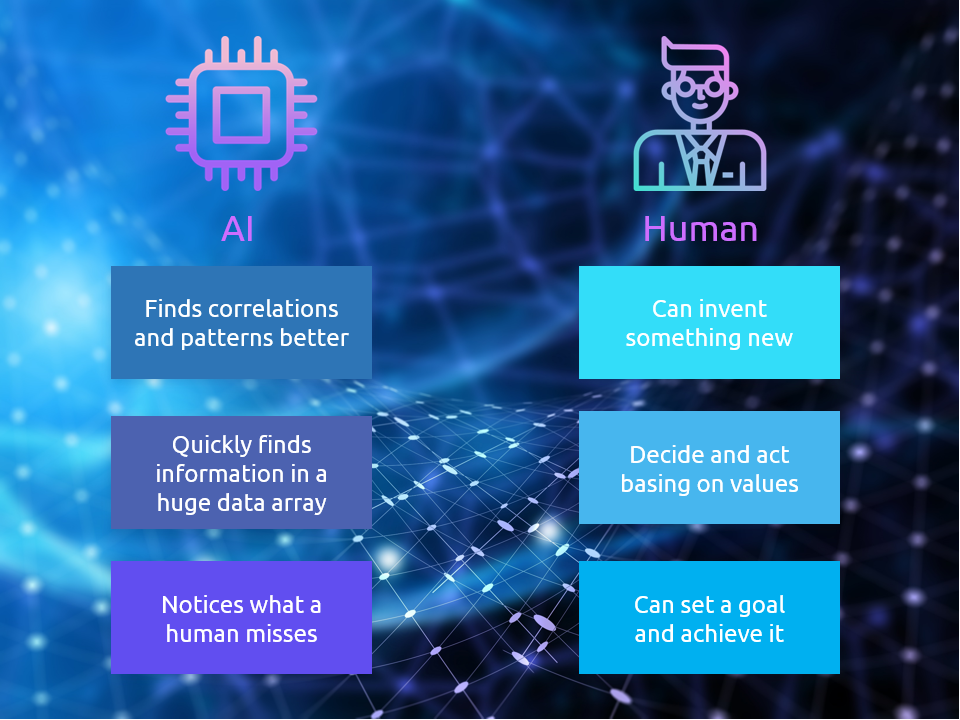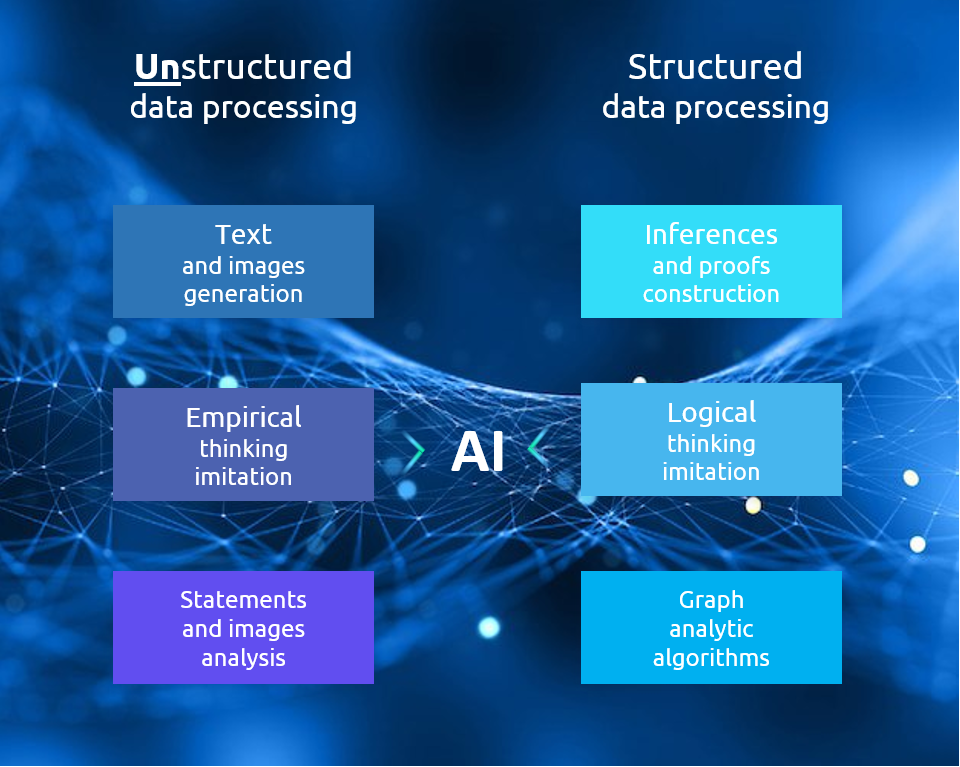AI: analysts no longer needed?
The rapid development of AI makes us think about how it will transform the data analysis methods and technologies. Such a vision is necessary for those who lead the corporate data governance practices to assess which of them are worth investing. Still the familiar tools be used, or will they be completely replaced by the new ones? Which place will human take in these processes?
There are claims that AI will soon outperform human in the most of analytical tasks, which will make a number of analysts jobless. Really, a machine can consider a huge amount of information comparing to a human, assess a lot of factors and provide a reasonable solution very quickly. ChatGPT gave an impression of revolution because AI is now able to communicate a human directly, using the natural language. The disappearance of a mediator between a decision maker and the data processing tool forced to talk about the uselessness of those analysts and programmers who have provided such an "interface" before.
What a human can do, but AI can not?

Can AI really outperform or replace human? This question shall be divided in two: is this possible technically and will it really benefit the people, organizations, and the society.
The technical answer is obvious. The current AI implementations based on the machine learning does not produce fundamentally new information. They only generate numberless variations based on the data acquired at learning. ChatGPT, one of the most impressive examples of the generative neural networks, can "tell a story" or "write a poem", but its results will anyway be a compilation of the known plots, artistic techniques, writing styles etc. A person easily distinguishes mass literature from a masterpiece, but ChatGPT cannot create a masterpiece: it is not creative and can only reproduce the known examples. The same holds true when using it as an analyst: ChatGPT can make trivial recommendations, refer someone's experience, but it can't invent new marketing strategy moves or an innovative product idea. Meanwhile, only new and innovative solutions can provide a really valuable business results and allow to get ahead of competitors.
The answer to the question of whether the hypothetical full analytical processes automation can be beneficial is also rather negative. The Sustainable Growth concept has emerged because achieving a quantitatively maximum result – income growth, goods output etc. – does not guarantees the move toward the goals significant for a human. The business decisions, even in the most "capitalistic" corporations, are always made considering the human values. It is obvious that we cannot delegate to AI making decisions on what will be better from an axiological point of view: it will always be a human prerogative.
How AI will transform corporate IT?
This gives us two spheres in which AI shall not, and most likely will not ever be able to replace human: the creativity and the goal-setting, value judgments. This rises the requirements to the analysts: those who are not creative and cannot act based on values can be replaced with an algorithm.
Meanwhile, AI technologies will obviously change the corporate analysts work practices. The next generation AI tools will not be limited with the data acquired at the learning time, and will be able to query external sources – for example, extract and process the operational data from the business automation systems. The today's AI tools can automate data correlations discovery which signals the real-world processes patterns. The potential of unstructured data transformation into the sets of facts has yet to be discovered.
Can't be overlooked either that the modern AI technologies are modeling the empirical thinking and neglect logical, conceptual thought. But only such tools will make AI inference explainable and verifiable.
What information does AI process?

"Hype" AI solutions are focused on the unstructured information processing, i.e. textual and graphical. This is also a consequence of modeling primarily empirical thinking. In business applications, first of all, structured data is processed, which is always conceptualized. It means the data has a formal meaning, can participate in calculations, be a subject of logical control etc. The AI-based processing of such data is still less developed except some narrow specific tasks. One of the obstacles is the fragmentation and, in some cases, complexity the data meaning interpretation.
Transforming all the information available for analysis from many disparate data sets into a single, coherent representation (Enterprise Knowledge Graph), the presence of an unambiguously interpreted meaning for each unit of processed information and the ability to determine the level of trust in it, will reduce the share of routine in work analysts and increase the space for creativity. The use of graph analysis algorithms, including machine learning on graphs, will open up new opportunities for extracting business value from data. The DataVera solutions allows enjoying these benefits right now.
We are sure that the comprehensive development of data management practices using AI as one of the tools will significantly benefit almost any business. Having the clear vision of the technology's development, we offer our customers using the data governance tools and methods which will remain relevant in the mid-term prospective.
